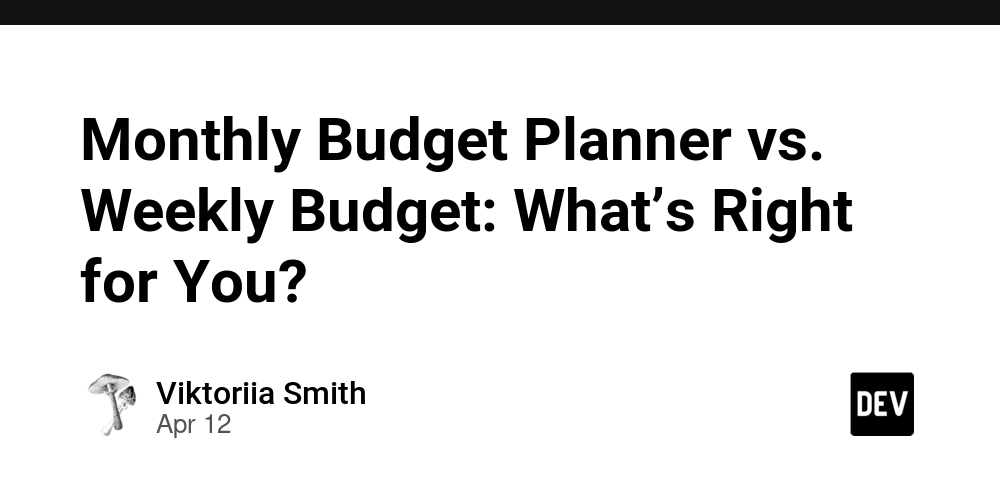When it comes to budgeting, there’s no one-size-fits-all solution. Some people thrive on long-term planning, while others prefer shorter, more flexible timeframes. That’s why it’s important to understand the difference between a monthly budget planner and a weekly budget system—and which one suits your lifestyle best. With intuitive apps like Aisance: Money Tracker, users can easily experiment with both formats to find the rhythm that works best for their goals and spending habits.
The Monthly Budget: Structure and Stability
A monthly budget planner gives you a full-picture view of your income, recurring bills, and projected expenses. It's a great choice for those with consistent income and regular monthly obligations. With this method, you allocate your money at the beginning of each month and track how closely you stick to the plan.
Apps like Aisance offer built-in monthly views where users can see total income, fixed bills, and remaining balance for variable categories like dining, shopping, or entertainment. This type of planning is ideal for long-term goal setting—whether you're saving for a trip, paying off a loan, or building an emergency fund.
The main downside? If you overspend early in the month, it can be difficult to stay on track without constant self-correction. That’s where weekly check-ins—or even switching to a weekly format—can make a difference.
The Weekly Budget: Flexibility and Focus
A weekly budget is more hands-on. You divide your available funds into weekly portions and track more frequently. This approach helps build discipline and makes it easier to adapt to unexpected expenses. It’s especially helpful for people with irregular income or those prone to impulsive spending.
With Aisance, you can set weekly limits and get notifications when you're close to overspending. The short time frame encourages frequent interaction with your money tracker, making you more aware of spending patterns as they happen.
Consider this method if you want more control over day-to-day decisions or if monthly planning feels too distant to stay motivated.
Some users even combine both methods—for example:
Use a monthly budget planner for fixed expenses like rent, utilities, and subscriptions
Track variable categories like groceries, dining, or transportation on a weekly budget
Review both views at the end of the month to spot trends and adjust goals
If you’re just getting started, try a weekly plan for 30 days to build the habit, then transition to a monthly format once you feel confident. Aisance supports both structures, so you don’t have to commit right away—you can shift between them as your financial needs evolve.
At the end of the day, the best budget is the one you’ll actually stick to. Whether you prefer a broader overview or tighter control, using the right budgeting strategy—and the right app—can make a huge difference in how confident and in control you feel financially.



Budgeting is essential for effective money management, but choosing the right method can make all the difference. Two common approaches are the monthly budget planner and the weekly budget each with its own benefits depending on your lifestyle and financial goals.
A monthly budget planner is ideal for individuals with predictable income and fixed monthly expenses like rent, loans, or utility bills. This method gives you a big-picture view of your finances, helping you allocate funds for savings, essentials, and discretionary spending. It’s especially helpful for long-term planning and tracking financial trends over time.
On the other hand, a weekly budget works well for people who are paid weekly or have variable income and expenses. It allows for more flexibility and short-term control. If you struggle with overspending or want to break the habit of living paycheck to paycheck, a weekly budget can help you stay disciplined and make quicker adjustments.
So, which one is right for you?
If your income and bills are consistent, a monthly budget may be more efficient and less time-consuming. But if you need more control, are on a tight budget, or your spending habits vary week to week, a weekly approach might suit you better.
In some cases, combining both methods can be highly effective. Use a monthly planner for major expenses and savings goals, and a weekly tracker for groceries, dining, and daily spending.
Ultimately, the best budget method is the one that fits your lifestyle and keeps you financially accountable.